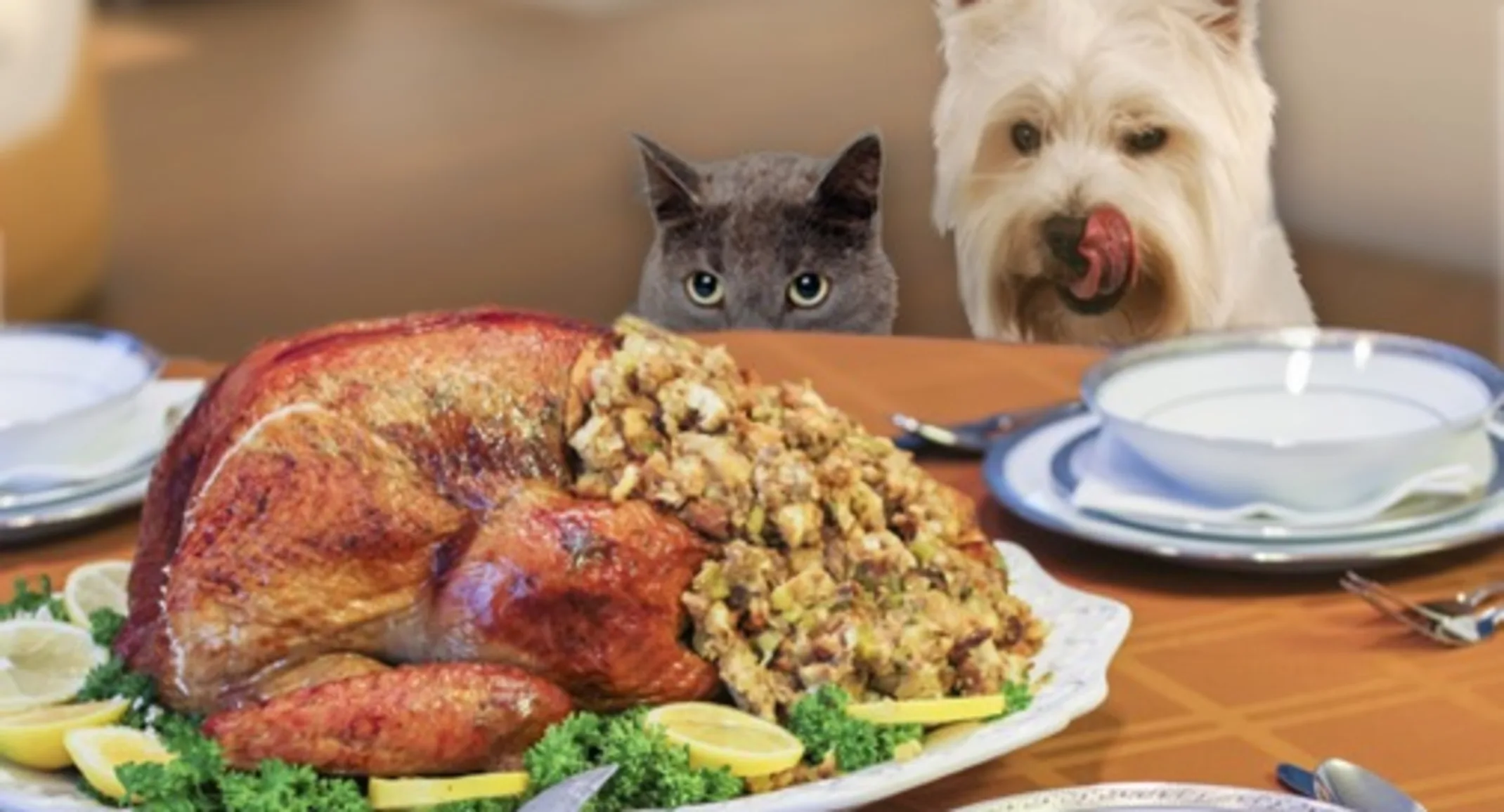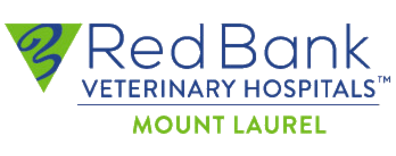Thanksgiving Pet Safety: Tips You’ll Be Grateful To Know
Food Tips

THE HAZARDS OF PEOPLE FOOD
We often share food with our pets as a form of bonding. However, this Thanksgiving, it’s better to share your love and not food to avoid a visit to the veterinarian.
Many pets may beg, making it hard to say no. Feeding any type of human food, even in small amounts, can be dangerous to your pet. Table food can cause an upset stomach, which includes diarrhea, vomiting, and sometimes a dangerous condition known as pancreatitis. Some common foods are even toxic.
FOODS TO AVOID
There are two groups of food to avoid feeding your pet. One is high-fat foods, which can cause pancreatitis (inflammation of the pancreas) and affects both dogs and cats. The other is toxic foods which require an immediate visit to the veterinarian.
HIGH FAT FOODS
Turkey (dark meat)
Buttery/Fried Dishes
Stuffing (if cooked with butter or whole milk)
Gravy
Casseroles (depending on the fat content)
Certain Desserts
TOXIC FOODS
Uncooked bread dough
Onions
Raisins, grapes
Xylitol (a sugar substitute found in gum and candies)
Certain spices/oils - (sage)
Chocolate (dark chocolate is more toxic than milk chocolate)
Avocado (seed only)
See a complete list of toxic foods and plants and their effects at the poison control section of the ASPCA’s website.
BREAD DOUGH
Ingestion of raw bread dough is very dangerous. Here's why:
When uncooked dough is ingested, the warm temperature in your pet’s stomach causes it to rise. The dough expands, releasing carbon dioxide which can cause bloat (the stomach fills with gas and fluid and becomes distended). This can lead to an even more serious condition called Gastric Dilatation Volvulus (the bloated belly rotates, cutting off the blood supply). GDV is a life-threatening situation that requires emergency care.
Raw bread dough also contains yeast. When ingested in large quantities, yeast will ferment in the stomach releasing carbon dioxide and alcohol. Alcohol is then absorbed into the blood stream causing alcohol poisoning. Ingestion of alcohol in dogs and cats can be deadly.
UNATTENDED FOOD & DRINK
Even if you do not purposefully feed your pet human food, pets may jump on tables and take advantage of uncovered trash cans. Here are some situations to anticipate.
Guard beverages, especially those containing sugary drinks or alcohol.
Clean up quickly. Unattended plates of food can be licked clean very quickly, giving your pet access to many dangerous foods.
Dispose of meat bones where pets can’t get them. Bones may seem like a prize to your pet but they can cause lacerations or obstructions to your pet’s digestive system, which may require surgery.
Secure garbage can lids. The trash not only contains dangerous foods but also containers and wrappers that can cause injury and damage if ingested.
Keep pets away from counter tops and tables where they can gain quick access to hazardous foods.
Secure pets in a safe room of the house where food does not present a danger.
FAMILY & GUESTS
Inform guests not to feed your pet any table food during the celebration. Keep a selection of pet-friendly treats available for guests to share instead.
Prepare an enrichment toy (such as a Kong) to give your pet while the rest of the family is eating. Or, surprise your pet with a new toy to keep him/her occupied.
Guard entrances so that pets do not escape when friends and family come and go.
Extra friends and family in the home may cause pets to feel nervous and anxious. Make sure pets have a safe place to go such as a crate or spare bedroom.
Let’s work together to make Thanksgiving a safe holiday for our pets. Make sure your pets are monitored and given a quiet place for them to relax, away from food and family activities. A few simple precautions will help ensure that everyone has a Happy Thanksgiving!
Should your pet experience an emergency this Thanksgiving, contact your primary care veterinarian or one of Red Bank Veterinary Hospital’s emergency hospitals in Cherry Hill, Tinton Falls, Linwood or Hillsborough by calling (732) 747-3636.
